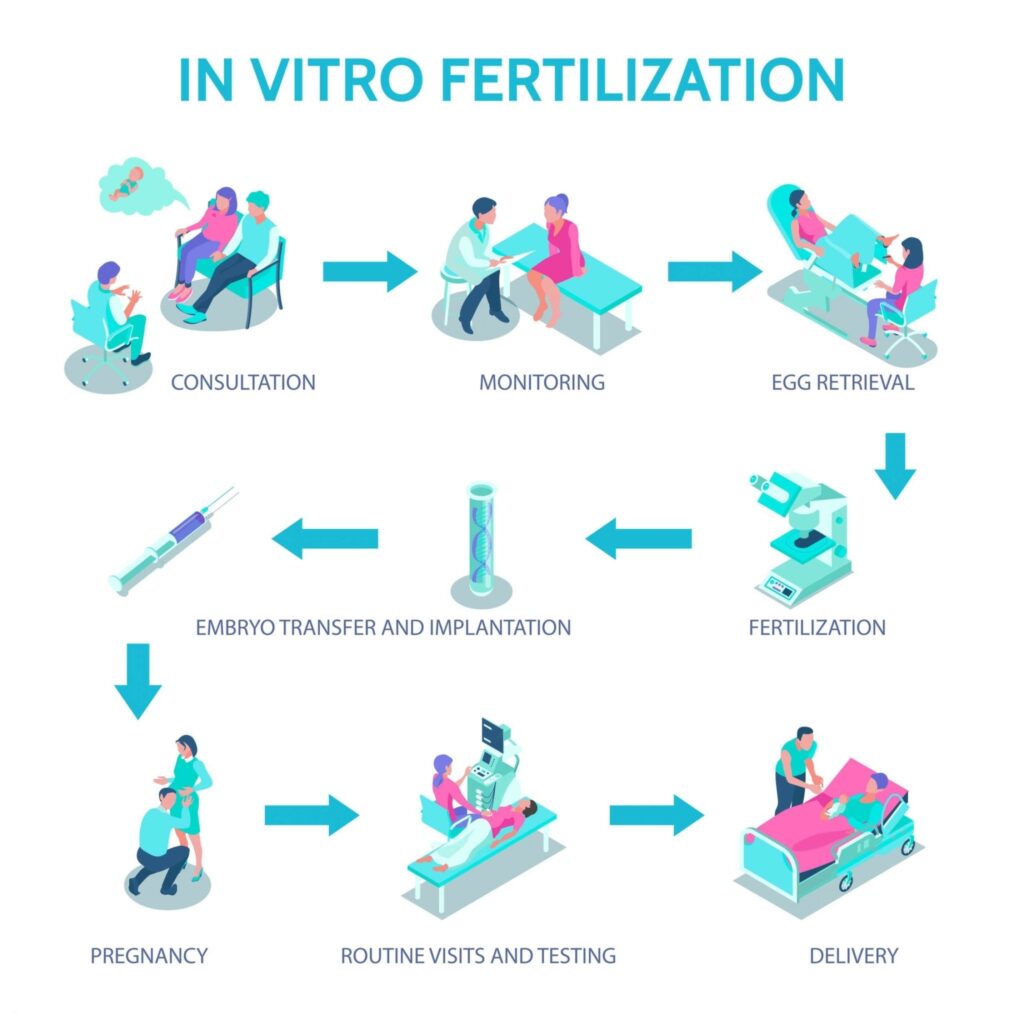Introduction
In the world of fertility treatments, In Vitro Fertilization (IVF) offers hope to couples struggling to conceive. But did you know that there are different types of IVF procedures? Understanding these variations can help you find the right one for your unique needs. Let’s go into the world of IVF and identify the different types that can lead you to the cherished path of parenthood.
Understanding IVF
What’s really IVF? IVF (In vitro fertilisation) often involves combining an egg and sperm outside the body in a laboratory dish to create an embryo. This embryo is then transferred to the uterus for potential implantation and pregnancy.
Types of IVF

Conventional IVF
The conventional IVF process involves several essential steps:
Step 1: Ovarian Stimulation
During this step, fertility medications are used to stimulate the ovaries to produce multiple eggs, increasing the chances of successful fertilization.
Step 2: Egg Retrieval
Once the eggs are mature, they are retrieved from the ovaries using a minor surgical procedure.
Step 3: Fertilization and Embryo Transfer
In the laboratory, the eggs are fertilized with sperm, and the resulting embryos are monitored for quality. The best-quality embryos are then transferred to the uterus.
2. Mini IVF
Mini IVF, also known as Minimal Stimulation IVF, offers a gentler approach compared to conventional IVF. It involves the following steps:
Step 1: Reduced Medication
Unlike conventional IVF, Mini IVF uses lower doses of fertility medications to stimulate the ovaries, aiming to produce a smaller number of high-quality eggs.
Step 2: Egg Retrieval and Embryo Transfer
The egg retrieval and embryo transfer steps are similar to conventional IVF, ensuring the best embryos are selected for transfer.
3. Natural Cycle IVF
Natural Cycle IVF is a more natural approach to the IVF process. Here’s how it works:
Step 1: Monitoring Natural Ovulation
In this approach, the woman’s natural ovulation cycle is monitored closely, and a single egg is retrieved when it reaches maturity.
Step 2: Fertilization and Transfer
The retrieved egg is then fertilized with sperm in the laboratory, and the resulting embryo is transferred to the uterus.
Identifying the Right Type
Each type of IVF has its own advantages and considerations. To identify the right type for you, it’s crucial to undergo a thorough evaluation by a fertility specialist. Factors such as age, medical history, and fertility goals will play a significant role in determining the most suitable approach.
Conclusion
In the world of fertility treatments, IVF opens doors to new possibilities for couples hoping to start a family. By understanding the different types of IVF available, you can make an informed decision that aligns with your needs and increases your chances of a successful and joyous pregnancy.
FAQs
- Is IVF the only option for fertility treatment?
While IVF is a popular and effective fertility treatment, it’s not the only option. Depending on your specific fertility challenges, other treatments like IUI or fertility medications may be considered.
- How do I know which type of IVF is right for me?
Your fertility specialist will conduct a thorough evaluation and discuss your medical history and goals to determine the most suitable type of IVF for your unique situation.
- What are the success rates for each type of IVF?
Success rates can vary depending on various factors, including age, overall health, and the specific type of IVF used. Your fertility specialist will provide you with personalized information about success rates.
- Are there any risks associated with IVF?
As with any medical procedure, there are some risks associated with IVF, such as multiple pregnancies, ovarian hyperstimulation syndrome, and the potential for embryo implantation failure. However, fertility specialists take measures to minimize these risks.
- How can I prepare myself for an IVF procedure?
Preparing for IVF involves lifestyle adjustments, emotional support, and being well-informed about the process. Your fertility specialist will guide you through the preparation steps and answer any questions you may have.

